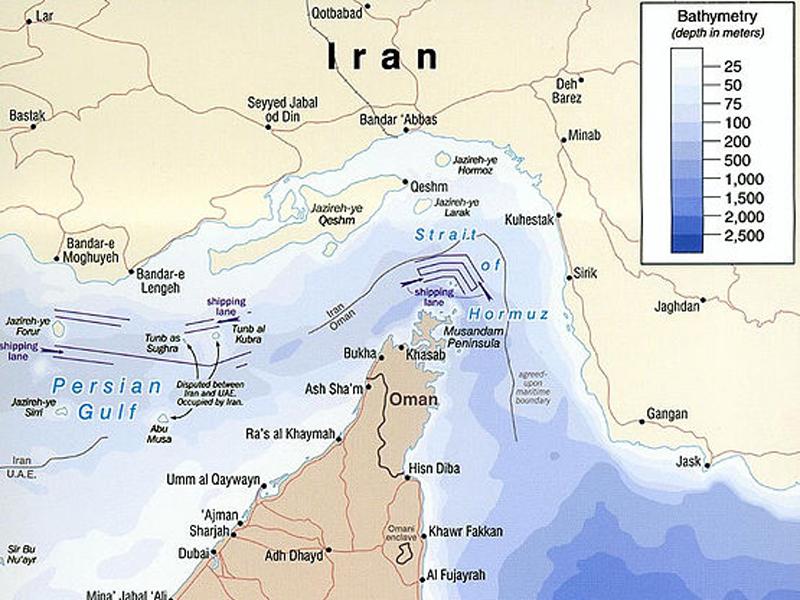Iran, U.S. tangle over Straits of Hormuz as U.S. admits there are ‘red lines’ Iran can’t cross
Iran says it will shutdown the Straits of Hormuz if the U.S. imposes more sanctions on Iran over its nuclear program.
Iran and the United States are in the midst of another war of words.
This time, the Iranians say if the United States and its western allies continue their efforts to increase sanctions on Iran and its nuclear program, Iran will shutdown the Straits of Hormuz — the avenue for roughly 20 percent of the world’s crude oil. The United States says that any effort to prevent freedom of navigation — guaranteed by international law — would be an act of war.
Thursday morning, the U.S. Navy moved a carrier battle group into the area, to back up its words. The Iranian Navy, for its part, is conduct naval war games in the area as well.
What has Iran up in arms is the U.S. efforts to prevent businesses that do business with the Iranian Central Bank from doing business with the U.S. The Central Bank facilitates the vast majority of Iran’s oil exports, which make up the majority of that country’s economy.
But there’s more tension in the Middle East over Iran, this time between the United States and Israel. Earlier this month, Defense Secretary Leon Panetta panned the idea of an Israeli attack on Iranian nuclear facilities. Israel issued a formal diplomatic protest and demanded a retraction.
So, in a follow-up, Panetta admitted to CBS News that there are formal red lines that exist with regards to Iran. In other words, according to Panetta, the United States has promised Israel that if Iran takes certain steps, the United States will defend Israel.
Matthew Kroenig, Stanton nuclear security fellow at the Council on Foreign Relations, said closing the Strait of Hormuz is undoubtedly a line Iran will also not be allowed to cross.
“The Strait of Hormuz is vital for global energy supplies, so any U.S. president would be forced to re-open the strait,” Kroenig said. “That would mean military conflict, directly engaging with the Iranian Navy.”
Acquiring nuclear weapons, Panetta said, is one of those red lines. But Israel wants to make sure there is a line in the sand before it comes to that.
“What are the points that Israel or the United States might decide Iran has gone too far and decide to strike,” Kroenig asked. “As I pointed out, I think there are three.”
But only the first two relate to nuclear development, he said. The third relates to military developments.
1. Enriching uranium to weapons-grade level. Right now it enriches to 20 percent. If it reaches 90 percent, that would be a good indication Iran is rushing to a nuclear weapon.
2. If Iran kicks out international inspectors. IAEA inspectors are currently monitoring Iran’s activities. If they’re ejected from the country, that would be a good indication they’re up to no good, Kroenig said.
For years, the Obama administration in the United States has resisted efforts to say red lines exist with respect to Iran’s military development.
“There seems to have been a change in tone in the administration’s public line,” Kroenig said.
Kroenig said that the U.S. will be forced to choose whether to attack Iran in the coming months. The choice will come down to, he said, allowing Iran to have nuclear weapons, or conducting a preventive military strike.
Both have unappealing consequences, he said.
